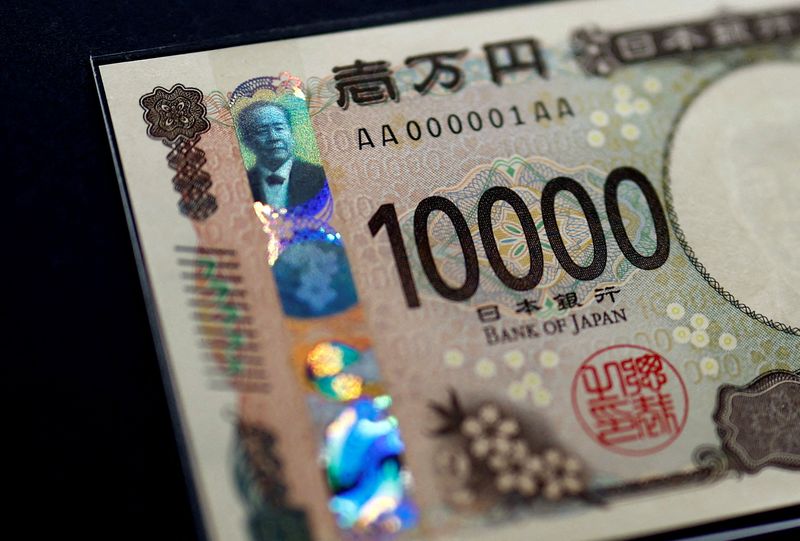Dollar strengthens against yen on Bank of Japan's hike uncertainty
By Chuck Mikolajczak
NEW YORK (Reuters) - The dollar rose against the yen on Monday to resume its recent ascent after Japan's top central bank official signaled further monetary policy tightening was on the horizon, but was vague on the timing of any such hike.
Bank of Japan Governor Kazuo Ueda reiterated the economy was progressing toward sustained wages-driven inflation and warned against keeping borrowing costs too low, leaving open the chance of another interest rate increase as early as next month. These were his first comments on monetary policy since Donald Trump's victory in the U.S. presidential election two weeks ago.
But Ueda offered no hints as to whether a hike would come in December, citing various "uncertainties" that needed to be examined.
"The Bank of Japan governor didn't give any fresh signals," said Marc Chandler, chief market strategist at Bannockburn Global Forex in New York.
"Because of the chaos caused in July, the market is anticipating that BoJ would better prepare the market for the next move and the Bank of Japan governor didn't do that today, and so I think the yen weakened."
The BOJ had unexpectedly raised short-term interest rates at its July meeting.
The dollar strengthened 0.17% to 154.6 yen. The greenback on Friday snapped a four-session rise against the Japanese currency after Finance Minister Katsunobu Kato on Friday warned authorities would take action to combat excessive exchange-rate moves.
The market was pricing a roughly 54% chance of a quarter-point hike at its next policy meeting on Dec. 19, little changed from before Ueda's speech.
The dollar index , which measures the greenback against a basket of currencies, fell 0.5% to 106.20, with the euro up 0.54% at $1.0598. The index hit a more than one-year high last week of 107.07 and has been rising on expectations a Trump victory could result in higher tariffs and potentially stoke inflation, which would slow the path of rate cuts from the Federal Reserve.
Two top European Central Bank policymakers signaled on Monday they were more worried about the damage that expected new U.S. trade tariffs would do to economic growth in the euro zone than any impact on inflation.
Recent comments from Fed officials, including Chair Jerome Powell, have pointed to the central bank being deliberate in its rate cut path.
In a light week for U.S. economic data, the National Association of Home Builders/Wells Fargo Housing Market Index rose to 46 this month, the highest since April, from 43 in October on optimism the recent elections would lead to regulatory changes that could spur residential construction.
Markets are waiting to hear who Trump will pick as Treasury secretary, with numerous media reports saying the list of potential candidates has expanded to include former Federal Reserve Governor Kevin Warsh and billionaire executive Marc Rowan.
"My sense is looking at the appointments and even this discussion about the Treasury secretary, and wanting to be sure that the Treasury secretary endorses tariffs," said Chandler.
Sterling strengthened 0.47% to $1.2674 after dropping 2.4% last week, its biggest weekly percentage drop since early February 2023.
In cryptocurrencies, bitcoin fell 1.82% to $90,114.00.
Source: Investing.com
